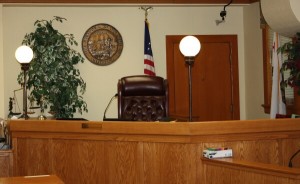 By Justine Joya
By Justine Joya
In the afternoon of May 30, Stephanie Albano, Daniel Albano’s ex-wife, served as the last witness for the prosecution. Shortly after her testimony, both counsels delivered their closing arguments to the jurors and the jury was sent to deliberate.
Daniel Albano is facing charges for six felonies – five counts of a lewd act with a child, and one count of attempting a lewd act with a child.
After the initial briefing of her close relationship with the McCoy family, Deputy District Attorney Deanna Hays started asking questions directly related to the alleged relationship between Ms. Albano’s ex-husband and the victim. The witness then recounted the conversation she had with Wendy McCoy, the victim’s mother. Ms. McCoy had told Ms. Albano that Mr. Albano was preying on her daughter, and referenced a specific beach house incident. When asked how she reacted when Ms. McCoy left and her husband returned, she told the court that she was still in shock, pacing back and forth, and ignored Albano for a large portion of the day. Finally, after her husband insisted on her telling him what was wrong, emotions flared. She asked her husband if there was anything he had to tell her about his relationship with the victim, and Albano’s demeanor quickly changed.
Before dismissing the witness from the stand, Defense Attorney Lathrop questioned Ms. Albano about the content of the conversation between her and her ex-husband, asking specifically if it focused on the invitation to San Francisco sent from the defendant to the victim. The witness stated that she was unsure about the content of that conversation.
DDA Hays began her final argument explaining why the victim initially did not want to reveal the alleged occurrences between her and the defendant. She asserted that the victim saw the Albanos as another family, and she did not want to be the cause of separation within her family. Hays continued by pointing out four key elements that she believed proved Albano was guilty on all six charges. The first was that touching between the defendant and victim was proven through the victim’s testimony. Second was that the intent of the defendant’s acts was sexual due to where he allegedly touched the victim and his persistence to keep it a secret from his wife; and the last two were easily determined by the fact that the victim was a minor at the time of the crimes and the defendant was well beyond 10 years her senior.
Hays then validated the victim’s reasoning by highlighting the fact that it was difficult for her to testify and “bare her soul” on the stand to a panel of strangers, and that she had no motive to make a false accusation.
When Ms. Lathrop approached the jurors to present her closing argument, she reiterated the policy regarding reasonable doubt. She emphasized that if they believed anything in the evidence was unclear or seemed unfit or inconsistent to what they believed, that they by law must find him not guilty beyond reasonable doubt. She continued her argument by invalidating the testimonies of some of the witnesses seen. Madeline Parker, one of the victim’s close childhood friends, testified that prior to the victim revealing the relationship between her and the defendant, she believed the victim may have been attacked by a teacher during an after-class meeting because she seemed upset. Lathrop then continued asking why the teacher, along with other people who were present during the events where the alleged attacks occurred, did not testify. As for the text message exchanged between the defendant and Mr. McCoy, she insisted that there was no proof that her client was apologizing or confessing to the alleged attacks.
The jury began deliberation in the early afternoon, and Judge McAdam predicted that a verdict would be decided on sooner rather than later.